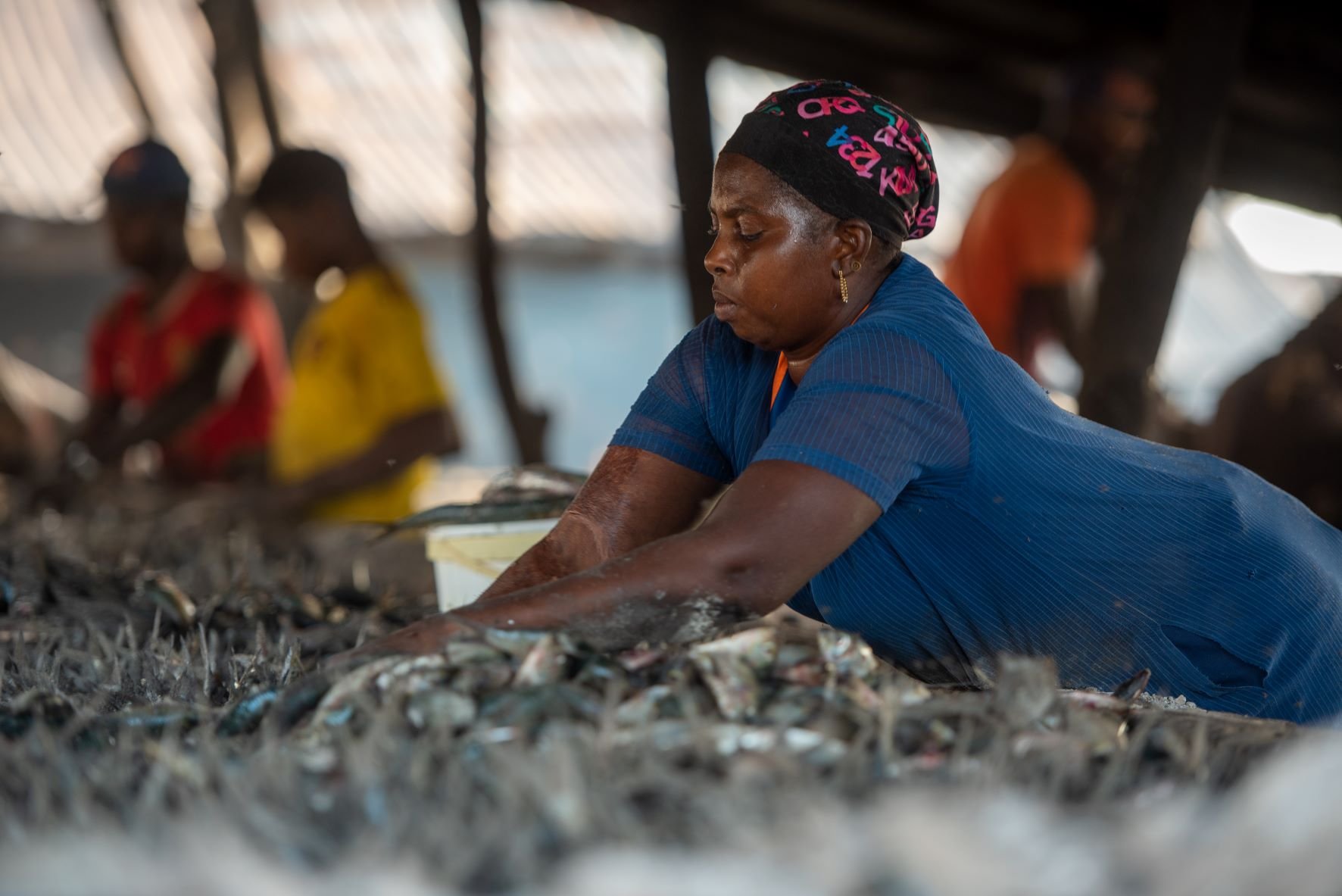When the United Nations agreed, in 2015, on the Sustainable Development Goals, they called, through SDG 14b, for market access to be provided to artisanal fisheries.
In Africa, improving market access for artisanal fisheries products is key to maximise the contribution of fisheries to food security. Women in African artisanal fisheries, whether they prepare, process, or market the fish caught by artisanal fishers, play an essential role to bring this fish to the millions of African consumers. Artisanal fisheries products are not only a source of proteins, they also provide essential nutrients and they can play an important role in addressing known nutrition deficiencies:
“The total nutrient yield from small-scale fisheries landings could provide 20% of the calcium, selenium, zinc and omega-3 fatty acids, to 137 million women in Africa.””
African women operating in artisanal fisheries also bring an important share of the household revenue. Antonia Adama Djalo, President of the National network of women in artisanal fisheries in Guinea Bissau (RENAMUP-GB) and also of the Federation of women associations in the economic sector (AMAE), emphasizes the central role of women in coastal fishing communities: “It is the women who, through processing, make sure that the fish caught by artisanal fishers is worth its weight in gold, and that this benefits their families and communities.”
So, to provide market access for artisanal fisheries products, as per SDG 14.b, in a way that improves food security and alleviates poverty in coastal communities, it is essential to tackle the difficulties encountered by the women working in the sector.
Innovation to improve working and living conditions
The use of traditional fish smoking kilns causes important problems for women: lack of hygiene, poor quality of the finished product, - which leads to poor marketability-, and health issues. Women work often more than twelve hours a day, long after dark, in unhygienic sites, in the permanent heat and smoke emanating from the ovens. This irreparably damages their eyes and lungs, not to mention the risk of severe burns.
Traditional smoking practices also have consequences on the coastal environment and fish resources. The excessive consumption of wood for fish smoking adds to deforestation, especially of mangroves, and the high post-harvest losses are a waste of fisheries resources and a source of coastal pollution.
In the early 2010s, in Senegal, several organizations partnered to develop an improved oven, called the FTT, from existing models, using locally available materials, and well adapted to artisanal processing operations. The FTT ovens have provided a relevant solution in terms of quality, health and environment as they increase product quality, reduce the use of wood fuel, and decrease the exposure of women to smoke. It is now used in several African countries, this improves both women working and living conditions and profit, reducing post-harvest losses and leading to better market access.
Of course, improved processing techniques will not solve all the difficulties women face in accessing markets. “There are other barriers to our processing activities, such as preserving the fresh product for processing. For this, there are new techniques, such as the use of solar energy, that we need to think about,” adds Adama Djalo. The use of solar energy powered refrigerated containers is getting traction in countries like Senegal, Côte d’Ivoire and Kenya.
These innovations are essential for African women in fisheries’ strategy to improve their working conditions, and to continue supplying African consumers with essential, and delicious products.
As the International Year of Artisanal Fisheries and Aquaculture is in full swing, African governments and their partners should make a priority of supporting innovations developed by and for women in the artisanal fishing sector, as a way to reach Sustainable Development Goals.
Banner photo: Aissatou Ba, a Guinean fish smoker working in Kafountine, Senegal by MEDIAPROD.









The Indian Ocean archipelago’s ageing population of small-scale fishers strives to bring generational renewal to fisheries by sensitizing school kids on the profession and training young women to re-skill in fish business.